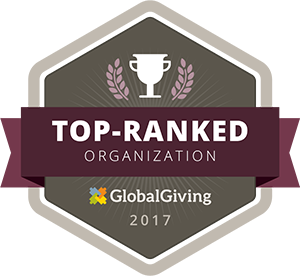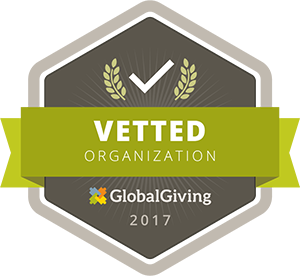Illiteracy
Education is one of Rwanda's core objectives for rebuilding, reconciliation and development. One of Rwanda's greatest assets is that multiple players are committed to improving the education system. In 2003, the nation's government abolished primary school fees, and as a result, Rwanda saw primary school attendance rise to roughly 94%.1 In January 2008, the World Economic Forum's Global Education Initiative and the Education for All Initiative announced they would be launching a pilot program in Rwanda that engages corporations and local donors to help the government develop the national education plan.2 Although these players have a strong commitment, in order for these policies to motivate development, key social issues must be examined and resolved first.
Although providing free primary education is a positive step, according to the Rwandan Ministry of Education, only 51% of students are completing primary school; only 16% are enrolling secondary school; and even fewer attend university.3 In 2005, according to the Rwanda Association of University Women (RAUW), 42% of the households indicated book, uniform and lunch fees were still barriers from sending their children to school.4 Social obstacles of this kind affect young girls the most. According to a presentation by RAUW, in primary school girls outnumber boys, but by university, only 4 out of every 10 students are girls.5 Girls are not dropping out of school because they lack intelligence or the will to learn, they are dropping out because they hold all the household responsibilities. In the short film, "Education: Equal Access Not Equal Opportunity," by Global Grassroots project We Are One, a young Rwandan girl said "The girls have all the responsibilities, the boys just have to wake up and go to school."6 To maintain the household — cook, fetch water, and care for younger siblings — girls must miss or arrive late to school. As a result many girls fall behind in their studies, which hinders their chance of passing the examinations to continue their education. In many ways, all odds are against girls in completing school; they are trapped in their socialized roles by historical, social and institutional barriers.
To reach educational goals, Rwanda must focus on the reasons girls' attendance rates drop after primary school. It seems that one of the most promising ways for bringing girls into the classroom is by helping mothers realize the value of education. According to the Education Policy and Data Center, of the out-of-school children in Rwanda, only 2% of their mothers had education beyond primary school, 56% had no schooling at all.7 For many families, it is hard to place value in girls' education when basic necessities such as food and water are limited; as one mother said, in an interview with We Are One, "The girls who succeed have parents who are helping them...those who don't have the means are being overworked. They are helping their mother and taking care of the house. This causes them to fall behind in schools."8 Perhaps it is also difficult to realize education's value when they themselves have had no access to education. In 2009, the Education for All Global Monitoring Report reported that 776 million adults—16% of the world's adult population—are illiterate; almost two-thirds are women and the majority live in South and West Asia, East Asia and sub-Saharan Africa.9
In Rwanda, 64.7% of the women are literate, but in the rural Byimana sector of Kigali, only 38.4% of the female population is literate. Without reading or writing skills, these women are excluded from community development, are uninformed of their rights, and have trouble getting jobs, going to the bank or helping their children with their studies. In a society where women struggle to be recognized, illiteracy preserves the oppression. In response to this problem, a group of eight women and men started Invincible Vision 2020, to fight women's illiteracy in their region. The team is working with teachers in primary schools around the sector to conduct daily one-hour literacy classes with the women. To date, the team has enrolled 1480 women in their course, 764 women are regularly attending, and 92 women have passed the exam for graduation. Many men have also asked to attend. In its first year, the project also added trainings on women's rights and laws protecting the family, and the team has been teaching various consciousness practices they learned during Global Grassroots training program.
In the Rwezamenyo sector of Rwanda, Innocent Baguma, president of the Twayibuke Association, noted a similar dilemma: women's illiteracy inhibited the growth and development of his association because most of the women he worked with were eager to be involved, but could not participate without reading and writing skills. With a vision to help women become active members of society and take charge of their own development, Innocent and 34 other members started Let Us Build Ourselves, a project to reduce illiteracy among women. Their one-year course teaches reading, writing, math, accounting and women's rights to vulnerable, illiterate women. To date the team has enrolled 50 women in the comprehensive program, and all participants now know the alphabet and can write words. Among the first class of 30 students, 97 percent are capable of reading the newspaper. All women are aware of the importance of taking their young girls to school; 19 young girls from the families have started attending school.
Using Global Grassroots' training skills in partnership development and fundraising, the team was able to collaborate with several other NGO partners to help participants open bank accounts and secure health insurance for all of the women for 2009. Let Us Build Ourselves is also using workshops from Global Grassroots to teach their participants bookkeeping skills, and the team plans to help the women start small income generating projects using the money they have saved after graduation. At the request of the local community, the group has also begun teaching English classes, and is using the profits they generate to subsidize the cost of their literacy program.
For these women, learning to read is transformative and liberating. As Christine Mukarutababa, age 44, said, "At the beginning I was illiterate, but now I am not. I am able to interact with the children and even discuss my children's lessons with them. I would like one day to take classes at the university!" Although women and girls still face social and institutional barriers that restrain their progress, if Rwanda focuses on increasing both adult literacy and formal schooling attendance, then it seems there is a better chance that it will become commonplace to support girls education all the way through university.
The women and men's collaboration in starting Invincible Vision 2020 and Let Us Build Ourselves demonstrates that it is possible to reverse traditional attitudes against girls' education. It will take community initiative, government support and outside groups' assistance to achieve universal education. But, if all of the participating groups recognize the consequences of denying this basic human right to over half the population, then they will also recognize the development potential that could occur by following through with this goal.
1Morrison, Nick. "Back to the Drawing Board." TES Connect. TSL Education Ltd., London, 10 Apr. 2009. Web. 16 Aug. 2009.
2World Economic Forum. Communications. Rwandan Government and Local Donors Join Forces to Achieve Education for All in Rwanda. Education for All Fast Track Initiative. The World Economic Forum, 25 Jan. 2008. Web. 16 Aug. 2009.
3Rwanda Education Sector: Long-term Strategy and Financing Framework 2006 - 2015. Rep. Ministry of Education, 12 Sept. 2006. Web. 16 Aug. 2009.
4Randell, Shirley. "Gender Equality in Education in Rwanda: What is Happening to Our Girls." Speech. Annual Seminar of the South African Association of Women Graduates. South Africa, Cape Town. 2006. Shirley Randell International. Web. 16 Aug. 2009.
5Ibid.
6Education: Equal Access Not Equal Opportunity. Prod. We Are One. Short Films by Global Grassroots Teams. Global Grassroots
7Rwanda: National Educational Profile. Rep. Educaiton Policy & Data Center, 10 Apr. 2008. Web. 16 Aug. 2009.
8Education: Equal Access Not Equal Opportunity. Prod. We Are One. Short Films by Global Grassroots Teams. Global Grassroots
9Watkins, Kevin, ed. Summary: Overcoming inequality: why governance matters. Publication. EFA Global Monitoring Report 2009, 2008. Web. 12 Aug. 2009.
Global Grassroots
1950 Lafayette Road
Suite 200, Box 1
Portsmouth, NH 03801 USA
Tel (+1) 603.787.5759
info@globalgrassroots.org
© 2023 Global Grassroots 501(c)(3) Non-Profit







Contact Us